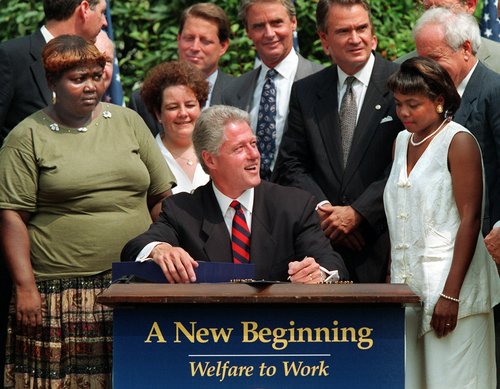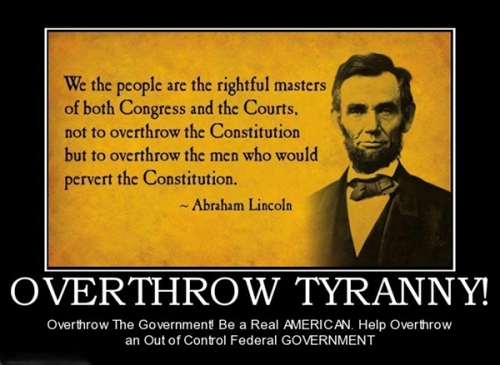
When the U.S. child support collection system was set up in 1975 under President Gerald Ford — a child of divorce whose father failed to pay court-ordered child support — the country, and the typical family, looked very different from today.
And as the nation’s social, economic and demographic landscape has shifted, the system has struggled to keep up. Cynthia Osborne, director of the Child and Family Research Partnership and associate professor at the University of Texas at Austin’s LBJ School of Public Affairs, explains how these changes have outpaced the decades-old system — and left the country with more than $113 billion in unpaid child support.
Walk us through what the child support collection system looked like in 1975. What issues was it designed to address? What did the typical family look like?
It was officially launched in 1975, which is when the government established Section IV-D of the Social Security Act. No-fault divorce had recently been passed, and there was a rapid increase in divorce.
In 1975, this system would try to ensure that after a divorce, we would try to replicate what the household looked like prior to the divorce with regards to the children’s well-being. So the father would continue to provide income to the child, and the mother normally would get the child following a divorce in terms of physical custody, and she would use the resources from the father.
The whole system was set up in a way to try to bring back what the nuclear family looked like prior to a divorce, and nearly everyone who entered into the child support system was a product of divorce. There were very few nonmarital births at that time.
During that time period, divorce was one of the single greatest predictors that a woman, especially a woman with children, would fall into poverty. The research indicated that fathers typically gained financially following a divorce, even though they were ordered to pay child support, and mothers typically lost financially, they had both the children and reduced income. And so the child support system was hoping to try to offset some of that.
The 1970s and ’80s saw profound social, economic and demographic changes. What sort of shifts were occurring, and how did they affect child support?
There was this huge increase in divorce, and a beginning rise in nonmarital childbearing that was nearly nonexistent in the early 1970s — then becoming, by the mid-1980s, up into the 20 percent of all children.
Those were big changes that were occurring in the family, and simultaneously there were gains and losses in the labor market. There were more and more women who were starting to enter into the labor market during both the 1970s and ’80s. And the question about what women’s role was, vis-a-vis caring for their child and working and so forth, was starting to be really front and center in the discussion of women’s place within the family and the economy.
Still, though, the majority of women, when they became mothers, were the primary caretakers and not the primary breadwinners. The single mothers also were not very likely to work. So married moms were staying at home to take care of the kid. Single moms were on welfare, and our welfare rolls were expanding quite rapidly.
The 1980s [also] saw a huge boom in the return to college education, and this is especially true for men. And those who got this education— with higher skills and higher-wage jobs — were starting to really pull away from men who had lower levels of education or moderate levels of education. And men at the very bottom, who had no high school education especially, were starting to lose in real terms of their value of earnings. And that’s really a trend that’s continued until today.
And when we think about who those men are partnered with, often they’re partnered with the same women who are more and more likely to be dependent on welfare rolls — during this time there was a huge increase in welfare rolls — and also mostly among less educated women.
So you now had a growing number of women who were either divorced or not married who were seeking public assistance, and a growing number of less educated men who had very few prospects in the labor market, and declining prospects at that.
It really can’t be overstated how important in the whole welfare reform debate [it] was that one of the fastest entrants into the labor market were women with children under the ages of 5. And it became harder and harder to justify that we should have a system that would support one group of women to stay at home with their children while this other group of women was choosing to enter into the labor market.
And all this set the stage for welfare reform?
Yes, with that kind of backdrop — with two earners becoming necessary, women making this conscious decision to enter into the labor market and the general dismay about the existing welfare reforms system — we started really to think seriously about how we should do this differently, and what should we expect of moms and so forth, and I think that’s why the work requirements became so steep in the welfare reform debate.
And with child support, by the mid-1990s when all of these reforms were being put into place, nonmarital childbearing had risen from being something that was not very pervasive to nearly one-third of all births, 25 to 28 percent. Now, it’s at 41 to 42 percent.
What were the hallmarks of the 1996 welfare reform?
Welfare reform really did punctuate this idea that fathers should be responsible for providing for their children, that the state will do it in limited circumstances, but that we want the fathers to be the ones who are responsible for this. And there was a very strong notion at that point that men who weren’t paying for their child support were not involved in their children’s lives, were just deadbeat and avoiding the system.
The Personal Responsibility Work Opportunity Reconciliation Act (PRWORA) made it so that the guidelines had to be more specific, and that the states had to enforce them more carefully. It changed what the performance measures were for states — basically, if you set an order, you have to collect on it and there could be penalties if you didn’t. And it really punctuated the idea that child support is a direct link with welfare, that there really isn’t a way for a mom who’s going to go on public assistance to avoid seeking child support.
In 1994 our rolls on welfare were some of the largest that they had been; they had really ballooned up to the point where upwards of 7 percent of kids were on welfare rolls. There was no end in sight because of the increase in nonmarital childbearing and who was now coming into the system was a different family type than what the system was initially set up to accommodate. And that, I think, remains one of the biggest challenges of our system.
And so the initial system was set up to replicate the nuclear family of dad as breadwinner, mom as homemaker, and now you have families in which mom and dad may have never lived together. They may have lived together when the child was born for a short period of time. They may or may not have shared resources. The father may have been contributing or not contributing.
And that gets us to the massive amount of unpaid child support — $113 billion and counting.
Right. Each state does it differently, but Texas will determine what a noncustodial parent’s income is. If he says zero, well, there isn’t zero child support, there will often be a presumption that he should be working full time, full year at at least minimum wage. So the judge will often set what’s called a minimum wage order, and it’s about $215 a month in Texas, which is about 20 percent of your net income of that. So here is a father who is now going to owe $215 a month plus about $50 a month in medical support. And he did not disclose that he had any income at the time that he established those awards.
It could be even worse, it could be — and this happens very often — that that man comes in, but his child is 2 years old. And now, either he’s been evading for two years, or he didn’t know he had this child, or they were together for almost all that time, but now they’ve separated. There could be lots of different reasons, but the child’s now 2 years old. The judge could order at that time that not only does he owe $200 each month moving forward, but he owes $200 a month for those two years …
Even if they were together but not married?
That’s right. And so this back child support is something that’s very real. A lot of the men start off in this hole that they just simply cannot dig themselves out of. For some of these guys, having a $5,000 arrears payment, it would be like a middle income person having a $50,000 debt that they’re just supposed to somehow work their way out of. It feels almost impossible.
What about the people who argue that this just doesn’t make sense?
I think it is actually not a simple answer. We do need to feel like men are being held accountable for their children, or noncustodial parents are supporting their children in some way. I do think that it’s reasonable for people to say somehow men have to demonstrate that they are going to provide for their children. Even if it is $200 a month and even if they don’t have a job, we are going to hold them accountable.
That just ignores, though, the fact that we can say that, but that doesn’t mean that they’re going to be able to pay it. We often know that if they’re not able to pay their child support formally, that they’re less likely to be able to contribute informally. They’re going to stay away from the child; they’re going to be less involved.
So although it makes sense on some level that we want to find a way to hold these dads accountable, in fact, what we’re doing is making it less likely that he’s going to be engaged in his child’s life by providing informally or being involved in other sorts of ways, and it’s going to cause difficulties in the co-parenting relationship between the mom and the father.
And for those reasons, there are proposals by the Obama administration — and other folks have been advocating this for quite a while — that say, let’s set what we call right-sized orders, that we actually take into account what he actually has the ability to pay when we establish these child support orders, and that we’re hoping that if he pays $25 a month now, that we can modify that order later when he gets more income and he’ll pay a little more and so forth.
This applies also to fathers who are incarcerated. We have a huge number of fathers who are incarcerated at some point in their child’s life. But it has not been a material reason to alter your child support award amount. So that’s another change proposed by the Obama administration, that if you are incarcerated, that we modify the child support order in some way to reflect that you cannot earn an income during that time.
In Texas, the average arrears payment that a father owes who’s been incarcerated coming out of prison is $8,000. When he comes out with high levels of arrears, he’s less likely to enter into the formal labor market and have his wages immediately garnished, so it just sends him back to the underground economy and the chances of recidivism and incarceration are really high.
Ultimately, then, what’s the purpose of child support system?
The states’ incentives really are to set amounts that can be collected on that make it look like they are reaching collection goals. But the performance measures at the federal level are based on the proportion that you collect based on the proportion that’s established.
So the states could benefit if they move to this more right-sized orders approach. But we have to be careful that that big dollar amount out there of what we’re collecting doesn’t become the driving force of how to maintain our child support enforcement system.
To be perfectly honest, I think if I could be queen for the day, in today’s families, I would change the presumption that there is an equal division of time and an equal division of responsibility for providing for that child. That’s not going to work for every family. Some of them have never been contributing, some have both been contributing but at disproportionate amounts.
But if we started with the 50-50 presumption, then the judge could work with the families to say, well, how do we get to some form of equality that works for you guys?
If we really started with this presumption that we’re going to jointly care for our children, even though the parents are not married to each other, and then let’s work out a system that seems fair in both the amount of time that we’re spending and the amount of resources that we’re spending, that it costs to raise this particular child, it’s a lot more work on the part of the state to figure out what that is, but it just feels like that would be more fair.
For our low-income guys who can’t afford anything, the moms are having to work, why don’t they provide the child care? We’re not ready to go that way with our families, but our families have changed so much, we need a system that starts to keep up with them some way.
from NPR
 A law suit challenging New Jersey’s automatic suspension of driver’s licenses for child support arrears says that the Division of Family Development misled lawmakers to convince them that the program is a success.
A law suit challenging New Jersey’s automatic suspension of driver’s licenses for child support arrears says that the Division of Family Development misled lawmakers to convince them that the program is a success. Nearly four decades of mass incarceration and over-criminalization have made the United States the world leader in incarceration and arrests. The number of Americans in federal and state prisons and jails has quintupled over the past four decades. As a result, nearly 2.3 million Americans are behind bars today. The U.S. incarceration rate is at more than six times the average across developed nations. “Communities of color” and “men of color” are hit hardest, with black men six times more likely and Latino men two-and-a-half times more likely to be incarcerated than white men.
Nearly four decades of mass incarceration and over-criminalization have made the United States the world leader in incarceration and arrests. The number of Americans in federal and state prisons and jails has quintupled over the past four decades. As a result, nearly 2.3 million Americans are behind bars today. The U.S. incarceration rate is at more than six times the average across developed nations. “Communities of color” and “men of color” are hit hardest, with black men six times more likely and Latino men two-and-a-half times more likely to be incarcerated than white men. While the effects of parental incarceration on children and families are well-documented, less appreciated are the family consequences that stem from the barriers associated with having a criminal record. A child’s life chances are strongly tied to his or her circumstances during childhood. Thus, these barriers may not only affect family stability and economic security in the short term but also may damage a child’s long-term well-being and outcomes.
While the effects of parental incarceration on children and families are well-documented, less appreciated are the family consequences that stem from the barriers associated with having a criminal record. A child’s life chances are strongly tied to his or her circumstances during childhood. Thus, these barriers may not only affect family stability and economic security in the short term but also may damage a child’s long-term well-being and outcomes. Many states have opted for oppression when it comes down to child support debt. A few wiser minds are prevailing in a few places. When the state of Maryland wanted to reach dads who were behind on their child support payments, it started in the boarded-up blocks of West Baltimore, in neighborhoods marked by drugs, violence and unemployment.
Many states have opted for oppression when it comes down to child support debt. A few wiser minds are prevailing in a few places. When the state of Maryland wanted to reach dads who were behind on their child support payments, it started in the boarded-up blocks of West Baltimore, in neighborhoods marked by drugs, violence and unemployment. “So even if we use taxpayer dollars to chase ’em down, and we catch ’em, right, and we go into their pockets, there’s nothing in there,” says Joe Jones of Baltimore’s Center for Urban Families.
“So even if we use taxpayer dollars to chase ’em down, and we catch ’em, right, and we go into their pockets, there’s nothing in there,” says Joe Jones of Baltimore’s Center for Urban Families. Like a growing number of state government officials, Maryland’s DiPrimio wanted to make parents an offer. But he needed their trust, and that was a problem.
Like a growing number of state government officials, Maryland’s DiPrimio wanted to make parents an offer. But he needed their trust, and that was a problem. To break through years of distrust, Maryland sent letters to parents with the logo of the Center for Urban Families, a nonprofit in West Baltimore that provides job training and other help to poor families.
To break through years of distrust, Maryland sent letters to parents with the logo of the Center for Urban Families, a nonprofit in West Baltimore that provides job training and other help to poor families. Response has been slow. In two years, slightly more than 100 parents have signed on. Many of them attend fatherhood meetings like one held on a recent Wednesday night. Two dozen men — 20-something to middle age, in sweats and in suits — sit in a large square.
Response has been slow. In two years, slightly more than 100 parents have signed on. Many of them attend fatherhood meetings like one held on a recent Wednesday night. Two dozen men — 20-something to middle age, in sweats and in suits — sit in a large square. Some states are trying to speed up the cumbersome process of adjusting an order when a parent loses a job. Ohio has experimented with sending simple reminders — by phone, mail or text — to parents who need to send in monthly payments. Texas has reached out to newly incarcerated parents, to let them know they can apply to have their payments reduced while in prison — something not all states allow.
Some states are trying to speed up the cumbersome process of adjusting an order when a parent loses a job. Ohio has experimented with sending simple reminders — by phone, mail or text — to parents who need to send in monthly payments. Texas has reached out to newly incarcerated parents, to let them know they can apply to have their payments reduced while in prison — something not all states allow. The Obama administration wants to “right size” child support orders from the start, and has proposed regulations to make sure they are set according to what parents actually earn. Officials say some jurisdictions base orders on a full-time minimum wage, even if a parent earns far less. They say this can backfire, leaving so little money after a parent’s wages are garnished that he or she quits and works underground instead.
The Obama administration wants to “right size” child support orders from the start, and has proposed regulations to make sure they are set according to what parents actually earn. Officials say some jurisdictions base orders on a full-time minimum wage, even if a parent earns far less. They say this can backfire, leaving so little money after a parent’s wages are garnished that he or she quits and works underground instead.

 Both the military industrial complex and the divorce industrial complex thrive off creation and perpetuation of real or perceived “enemies.” Collusion between private corporations and government corporations, or fascism, is on the increase at the expense of civil rights guaranteed by the U.S. Constitution. Today, the founding documents of the United States are sometimes given lip service, but are commonly violated by modern government officials. Just as foreign wars are profitable for war industries, war within families is profitable for the divorce industrial complex. This industrial complex consists of judges, courts, lawyers, psychologists, social workers, “child support” workers, and all who assist in separating parents who have committed no crime from their children.
Both the military industrial complex and the divorce industrial complex thrive off creation and perpetuation of real or perceived “enemies.” Collusion between private corporations and government corporations, or fascism, is on the increase at the expense of civil rights guaranteed by the U.S. Constitution. Today, the founding documents of the United States are sometimes given lip service, but are commonly violated by modern government officials. Just as foreign wars are profitable for war industries, war within families is profitable for the divorce industrial complex. This industrial complex consists of judges, courts, lawyers, psychologists, social workers, “child support” workers, and all who assist in separating parents who have committed no crime from their children. Victims of the divorce industrial complex that are still alive need to unite, to fight terrorism against families and against a renegade court system that ignores the foundation of law in the Constitution for a modern take on legal precedence. This tyrannical sickness is being spread across the globe to benefit special interests behind the scenes. No one is safe. A new world order of tyranny is already upon us.
Victims of the divorce industrial complex that are still alive need to unite, to fight terrorism against families and against a renegade court system that ignores the foundation of law in the Constitution for a modern take on legal precedence. This tyrannical sickness is being spread across the globe to benefit special interests behind the scenes. No one is safe. A new world order of tyranny is already upon us. Exposing the Fascist Divorce Industrial Complex: family court judges, family lawyers, psychologists, social workers, child protective services, child support agencies, and all who assist family courts in the process of diminishing relationships between fit parents and their children.
Exposing the Fascist Divorce Industrial Complex: family court judges, family lawyers, psychologists, social workers, child protective services, child support agencies, and all who assist family courts in the process of diminishing relationships between fit parents and their children. Many professed professionals routinely commit or assist in fraud upon courts of family law as they violate the U.S. Constitution by pretending to act “in the best interest of the child”. Then, under the false pretense, a created need for “child support” caused an unequal custody order, the same renegade, tyrannical judges issue extortion (“child support”) orders against these parents. They even routinely jail parents who do not or are unable to obey their extortion demands in debtors’ prisons of involuntary servitude. This false imprisonment is nothing less than slavery.
Many professed professionals routinely commit or assist in fraud upon courts of family law as they violate the U.S. Constitution by pretending to act “in the best interest of the child”. Then, under the false pretense, a created need for “child support” caused an unequal custody order, the same renegade, tyrannical judges issue extortion (“child support”) orders against these parents. They even routinely jail parents who do not or are unable to obey their extortion demands in debtors’ prisons of involuntary servitude. This false imprisonment is nothing less than slavery. This involves a perversion of language in which some acts are given names opposite of the true meanings, the foundation of lies in which families are being destroyed in kangaroo courts across the United States.
This involves a perversion of language in which some acts are given names opposite of the true meanings, the foundation of lies in which families are being destroyed in kangaroo courts across the United States.
 ONE KIND OF FAMILY is the one in an old greeting-card picture: two parents, one or more kids, all under one roof.
ONE KIND OF FAMILY is the one in an old greeting-card picture: two parents, one or more kids, all under one roof. A central character in that narrative is the “deadbeat dad,” a figure who emerged in American culture in the 1980s. One moment served as a catalyst: In 1986, Bill Moyers interviewed a New Jersey father of six named Timothy McSeed for a CBS report titled “The Vanishing Family: Crisis in Black America.” McSeed bragged on camera about his “strong sperm,” and cheerfully admitted he didn’t support any of his children financially because “I’m not doing what the government does.” Editorial columnists seized on the shocking interview, and the segment went viral in a time when that meant more than a few easy clicks: Requests for the tape poured into CBS, including an order for all 7,500 schools in the California public school system. CBS News said it was the largest-ever demand for one of its products.
A central character in that narrative is the “deadbeat dad,” a figure who emerged in American culture in the 1980s. One moment served as a catalyst: In 1986, Bill Moyers interviewed a New Jersey father of six named Timothy McSeed for a CBS report titled “The Vanishing Family: Crisis in Black America.” McSeed bragged on camera about his “strong sperm,” and cheerfully admitted he didn’t support any of his children financially because “I’m not doing what the government does.” Editorial columnists seized on the shocking interview, and the segment went viral in a time when that meant more than a few easy clicks: Requests for the tape poured into CBS, including an order for all 7,500 schools in the California public school system. CBS News said it was the largest-ever demand for one of its products. Men have been honestly caring for their children from the beginnings of civilization. Some have not, including mothers. It has always been that way. We don’t live in a perfect world. Enter the modern state in all its’ wisdom, where all people are expected to tolerate a state-controlled legalized extortion racket because children are the future – but mostly for benefit of the state. The state even routinely combs through bank records in the eternal vanity of finding a few stray bucks from those that dare to evade child support collection. It’s an old game whose influence has steadily increased since the free love movement, when rancorous feminists began burning their bras and politicians saw the political cache they could achieve through social manipulation. As a result, the real role of fatherhood and the definition of a family has been continually cheapened.
Men have been honestly caring for their children from the beginnings of civilization. Some have not, including mothers. It has always been that way. We don’t live in a perfect world. Enter the modern state in all its’ wisdom, where all people are expected to tolerate a state-controlled legalized extortion racket because children are the future – but mostly for benefit of the state. The state even routinely combs through bank records in the eternal vanity of finding a few stray bucks from those that dare to evade child support collection. It’s an old game whose influence has steadily increased since the free love movement, when rancorous feminists began burning their bras and politicians saw the political cache they could achieve through social manipulation. As a result, the real role of fatherhood and the definition of a family has been continually cheapened. In the corporation known as the United States, the system routinely oppresses fathers, while offering poverty support to single and divorced mothers (and some fathers). They have also been oppressing the taxpayer as well, hoping and pretending to bring in more than they spend, even as they send state corporations double their child support collections. Only the light-headed politicians of the United States would think to do such a thing. Of course, these are the same men and women that fund operations as the “policeman of world” while playing “Uncle Sugar” to the world. They even continue to send China a regular stipend because of its’ poverty, while running a burgeoning deficit that the children of the future are expected to pay. This is obviously unsustainable, despite the fact that they indirectly operate the printing presses that prop up the reserve currency of the world. In fact, this is the only reason that the lawmakers that rule “Uncle Sugar” can continue to operate as they have. The nation as it stands is living on borrowed time.
In the corporation known as the United States, the system routinely oppresses fathers, while offering poverty support to single and divorced mothers (and some fathers). They have also been oppressing the taxpayer as well, hoping and pretending to bring in more than they spend, even as they send state corporations double their child support collections. Only the light-headed politicians of the United States would think to do such a thing. Of course, these are the same men and women that fund operations as the “policeman of world” while playing “Uncle Sugar” to the world. They even continue to send China a regular stipend because of its’ poverty, while running a burgeoning deficit that the children of the future are expected to pay. This is obviously unsustainable, despite the fact that they indirectly operate the printing presses that prop up the reserve currency of the world. In fact, this is the only reason that the lawmakers that rule “Uncle Sugar” can continue to operate as they have. The nation as it stands is living on borrowed time. The family is only a family as long as the family unit is together. Once breached by rejection, separation and divorce, a family is not a family at all – especially outside of a committed relationship. That a single mother and her child is a real family is also debatable. The “wise men” of the nation have simply continued to revise the definition of the family to suit their needs. That is the deeper reality that the state would have you ignore to your continued peril. It benefits them for you to believe as you do.
The family is only a family as long as the family unit is together. Once breached by rejection, separation and divorce, a family is not a family at all – especially outside of a committed relationship. That a single mother and her child is a real family is also debatable. The “wise men” of the nation have simply continued to revise the definition of the family to suit their needs. That is the deeper reality that the state would have you ignore to your continued peril. It benefits them for you to believe as you do. As the state of Delaware faces fiscal challenges, one area lawmaker, Tim Dukes, says the impact of delinquent child support should not be overlooked. Federal figures indicate nearly $337-million in child support went unpaid in Delaware in Fiscal Year 2014.
As the state of Delaware faces fiscal challenges, one area lawmaker, Tim Dukes, says the impact of delinquent child support should not be overlooked. Federal figures indicate nearly $337-million in child support went unpaid in Delaware in Fiscal Year 2014. Fear was evident on both sides of the Child Support bill we were called back to consider last Monday for the Special Session. The House and Senate Judiciary & Rules Joint Committee, of which I am a member, heard nearly 5 hours of testimony, and much of it was based in fear. Those supporting the bill were afraid Idaho’s child support collection system would dissolve without passage of the bill, leaving children and families in dire straits. Those opposed to the bill were worried about loss of constitutional due process and opening our laws to foreign influence. Are any of these people crazy or worthy of ridicule or reprisal? Of course not. Concerns and questions must always be respected.
Fear was evident on both sides of the Child Support bill we were called back to consider last Monday for the Special Session. The House and Senate Judiciary & Rules Joint Committee, of which I am a member, heard nearly 5 hours of testimony, and much of it was based in fear. Those supporting the bill were afraid Idaho’s child support collection system would dissolve without passage of the bill, leaving children and families in dire straits. Those opposed to the bill were worried about loss of constitutional due process and opening our laws to foreign influence. Are any of these people crazy or worthy of ridicule or reprisal? Of course not. Concerns and questions must always be respected. In my position as the new Senator from Coeur d’Alene, I talked with and heard from a great number of constituents before the special session. Many were in favor, many opposed, but all were very worried. I studied the bill, in depth, on my own and conferred with others. Then I asked questions of a number of attorneys and, as you might guess, heard differing overall views. There were some consistent answers, however, and several of the most important areas of agreement were:
In my position as the new Senator from Coeur d’Alene, I talked with and heard from a great number of constituents before the special session. Many were in favor, many opposed, but all were very worried. I studied the bill, in depth, on my own and conferred with others. Then I asked questions of a number of attorneys and, as you might guess, heard differing overall views. There were some consistent answers, however, and several of the most important areas of agreement were: I voted to approve the bill because of the potential disruption. It passed the House 49-21 and the Senate 33-2. But I remain unhappy, as do most legislators, with the coercive methods used by the Federal government to force states’ approval of this bill. The Feds fueled fear by threatening to withdraw the entire $43 million dollar grant Idaho uses to collect child support payments if the bill was not approved exactly as written and within their dictated timeframe. They also threatened to close our access to the federal database portal used to track the parents responsible to pay for their children.
I voted to approve the bill because of the potential disruption. It passed the House 49-21 and the Senate 33-2. But I remain unhappy, as do most legislators, with the coercive methods used by the Federal government to force states’ approval of this bill. The Feds fueled fear by threatening to withdraw the entire $43 million dollar grant Idaho uses to collect child support payments if the bill was not approved exactly as written and within their dictated timeframe. They also threatened to close our access to the federal database portal used to track the parents responsible to pay for their children. There’s more to his legal opinion, of course, but Idaho continues to allow Federal dollars to dictate many of our decisions. To push back would require a show of will and coordination from the Administration, which is not in evidence right now.
There’s more to his legal opinion, of course, but Idaho continues to allow Federal dollars to dictate many of our decisions. To push back would require a show of will and coordination from the Administration, which is not in evidence right now. There is a lot of unfairness in the world. The American justice system stands ready to counter that, right?
There is a lot of unfairness in the world. The American justice system stands ready to counter that, right?
 “That’s pretzel logic, isn’t it?” Smith asked me. “Don’t tell a man the truth, and then penalize him for not correcting the record fast enough. Some men don’t realize what’s happened,” Smith said, “until they are under water with child support payments and then have no money to pay an attorney to fight for them.”
“That’s pretzel logic, isn’t it?” Smith asked me. “Don’t tell a man the truth, and then penalize him for not correcting the record fast enough. Some men don’t realize what’s happened,” Smith said, “until they are under water with child support payments and then have no money to pay an attorney to fight for them.” In 1987, his ex-girlfriend applied for welfare to support her new baby. She put Alexander’s name down as the father even though he wasn’t. A process server swore he served Alexander with papers demanding he appear in court, so when Alexander didn’t show up, he was declared a “deadbeat dad.”
In 1987, his ex-girlfriend applied for welfare to support her new baby. She put Alexander’s name down as the father even though he wasn’t. A process server swore he served Alexander with papers demanding he appear in court, so when Alexander didn’t show up, he was declared a “deadbeat dad.”